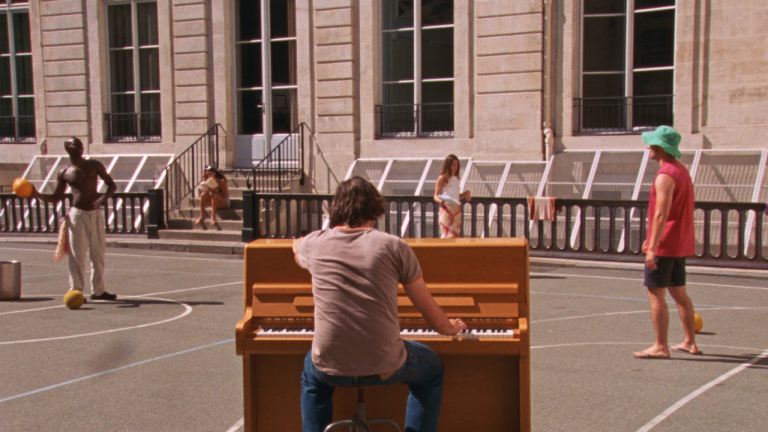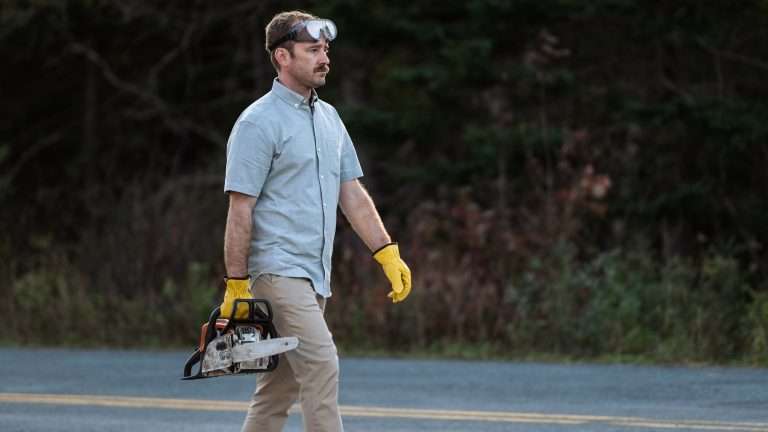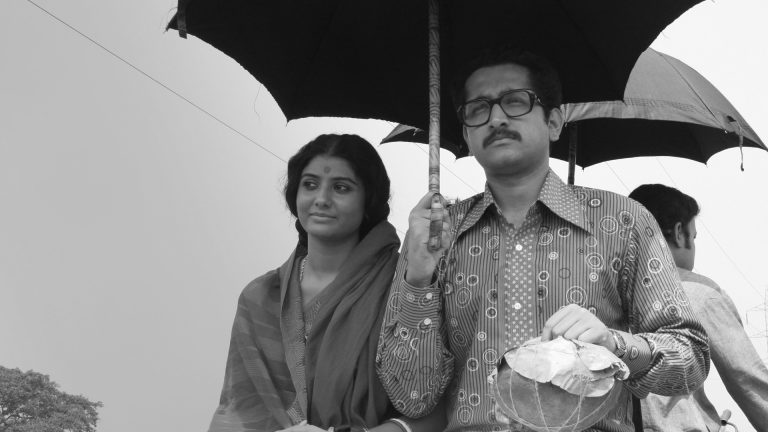20 Days in Mariupol (2023) ‘Sheffield DocFest’ Review: AP’s Mstyslav Chernov and his colleague, photographer Evgeniy Maloletka, were the only journalists left in the strategic port city of Mariupol, who entered right on the eve of the Russian invasion of Ukraine. They are deeply aware of their position and role in the situation, with Chernov relentlessly documenting a city literally falling apart, incurring mixed responses from those they film.
Chernov often articulates the dilemma that arises at the moment when he encounters aggrieved people who just have had their houses bombed into ruins. Should he keep filming them or stop and offer them solace instead? The choice of filming in such moments, which increasingly fill up the entirety of each progressing day, is loaded with self-doubt and guilt; however, he soon accepts the necessity of filming as a means to disseminate for the world to possibly halt the Russian advance.
Chernov’s team arrived in the city in late February 2022. He notes there is disquiet in the silence, which presages the beginning of the war. There are Russian tanks patrolling in the vicinity of the emergency hospital from where the film opens. We keep returning to the windows throughout the film. The tanks that loom on the streets outside constantly reinstate ominous possibilities as the rush of doctors, nurses, and patients being hurried in accelerates. Panic and anxiety build to uncontrollable extremes while the shelling is mounted on a quickly escalating scale of aggression.
At the bomb shelters civilians have erected, Chernov meets again a woman he’d seen on the streets helplessly straggling and worrying for her son, who hasn’t returned from work. He had assuaged her then to go home, offering her faith that the Russians won’t assail civilian homes. She’d taken his advice and gone home only to have her house blitzed by an airstrike. He says he apologized in his characteristic stoic voiceover. His voiceover lends narrative to the events and episodes he encounters, stringing them with what may be dismissed as too-straightforward techniques. Still, the visuals he lets us into are so staggeringly disturbing one is left too rattled before one can parse apart the style of provocation.
The shock drowns comprehension while we are battered with images of the streets and hospital corridors swelling with maimed, mutilated bodies. People tape the walls of the makeshift emergency shelters to avoid excessive fragments when the bombs fall. They huddle in basements in the utter absence of bunk shelters. Hospitals are in short supply of water; electricity snapped; with wards overflowing, dead bodies are filed away in utility and storage rooms. Mass graves are dug up for the cursory disposal of corpses. Plumes of smoke and sky tessellate the skyline as the Russian forces tighten their siege upon the city, trapping the civilians from all its corners and blockading safe passages.
Kids who got hit while playing soccer are rushed into the wards but to no avail. A dead four-year-old lies covered with a sheet. The doctors insist on Chernov to record all this gruesomeness and make Russia see up close the ravages they are wreaking in unsparing minutiae. In a telling line, one of the doctors says the war is like an X-ray, exposing human insides, with bad people getting worse. Driven by desperation and terror of starvation with depleted gas reserves, the commoners take to the supermarkets and shops, ransacking and pillaging everything.
People on the streets approach Chernov to film them, hoping these clips will reach out to their relatives in other parts of Ukraine, from whom communication has been wholly cut off. There is a doubly harrowing sequence where we see a pregnant woman being lugged out of a bombed maternity hospital on a gurney; soon, we realize both she and her baby have died. Chernov puts us through the wringer, never dialing down, aestheticizing, nor softening the immensity of the carnage pervading each nook and cranny of the strafed city.
The implacable footage is chillingly scored by Jordan Dykstra, creating an unyielding experience, never offering any respite for the viewer. The film, laid in its unadorned extremes for us, lodges deep in us, providing a potent, unforgiving account. This gruelingly intense film pushes us to look, observe and never forget what we have unleashed upon ourselves.

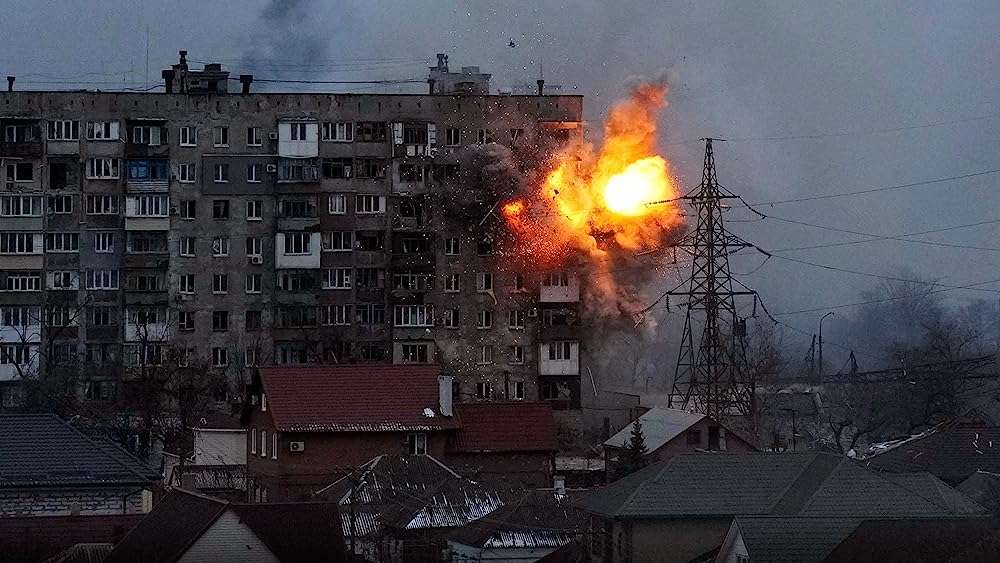


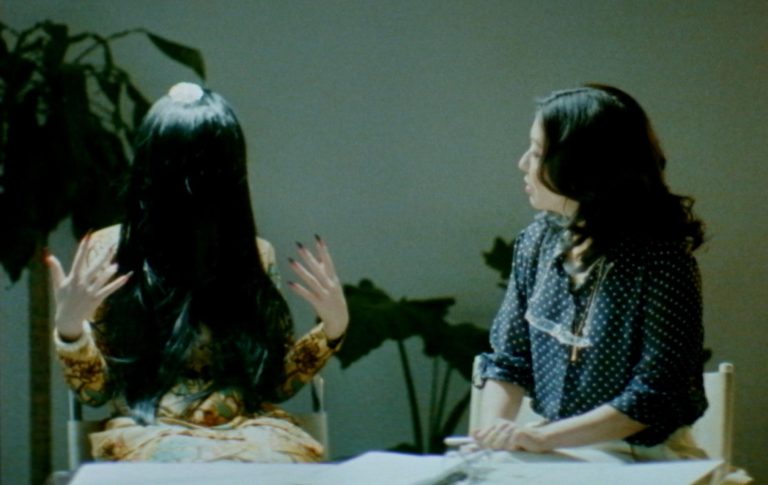
![A Cold Summer Night [2018]: ‘Locarno’ Review](https://79468c92.delivery.rocketcdn.me/wp-content/uploads/2018/08/A_COLD_SUMMER_NIGHT_HOF1-768x576.jpg)
![Netflix & Chill : Gandu [2010]](https://79468c92.delivery.rocketcdn.me/wp-content/uploads/2017/01/Gandu1-768x330.png)
